#Big brother Lion
Photo
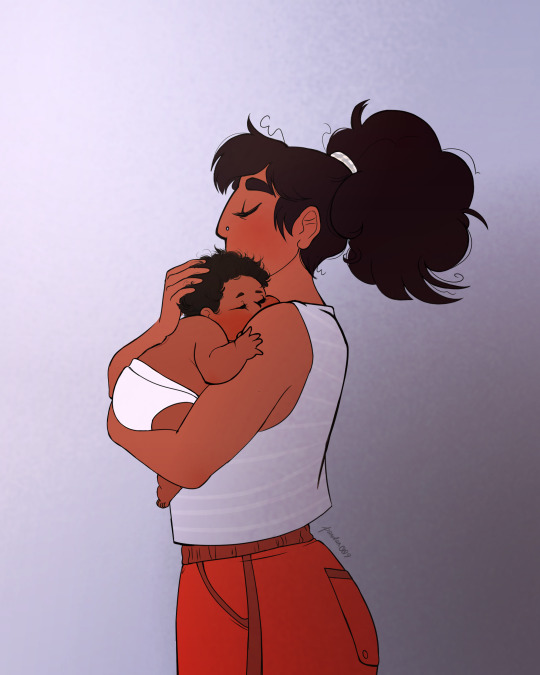
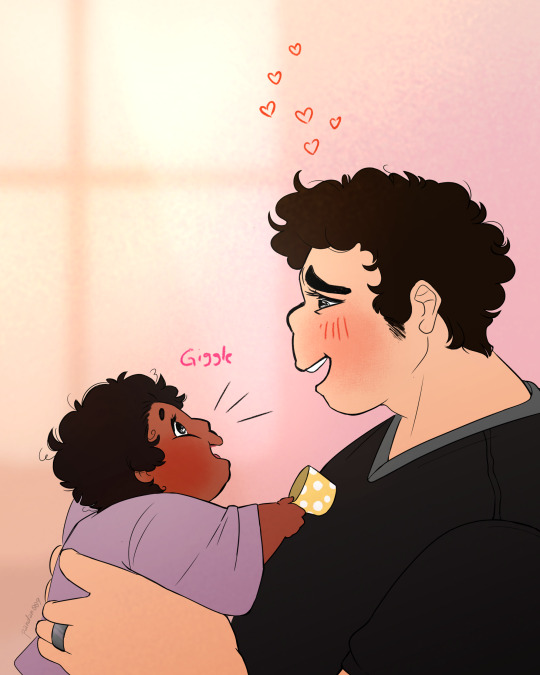
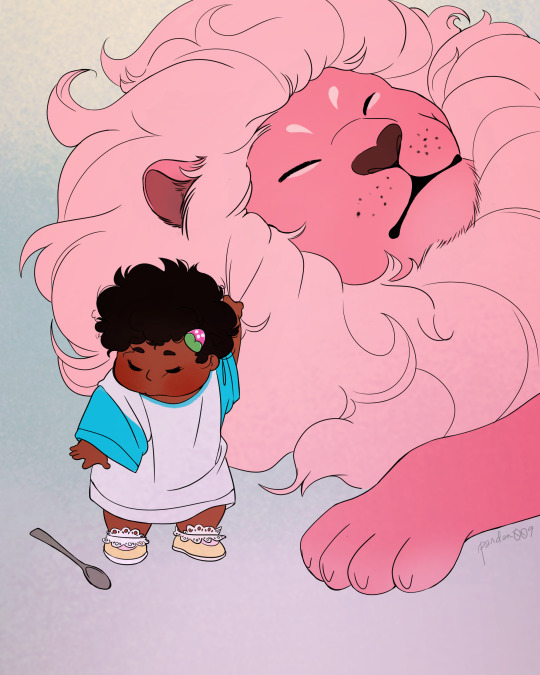
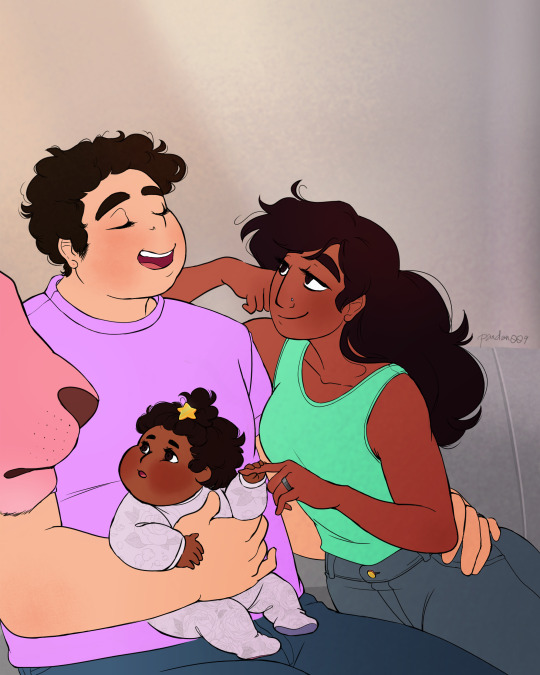

redone from this sketch dump!
And shout out to the people who supported me through Patreon!!!!
#Thank you for the supporttttt#connverse#long post#patreon shout out#Connie Maheswaran#Steven Quartz Universe#Ebony OC#Lion SU#my shiz#Silver TL#Lion is her big brother#Big brother Lion#Steven Universe#SU fanart#SU#That's the same baby the first one is just a few days old and her hair is still in the soft fuzzy state before it floofify#Like mentioned somewhere in the sketch's post. like a baby cheetah's soft fuzzy hair#Except that instead of turning matted it FLOOFIFY#bruh I thougt something was off on the sketch on the last image and I thought I just made Steven's head too big#And I only realized much much later that that what I actually wanted was just make Connie's body a bit smaller ://///#Steven is suppose to be this massive dad but the last one doesn't feel like it#hm oh well#better luck on the next drawing then lol#Steven Universe fanart#connverse kid
1K notes
·
View notes
Text
Emotionally devastating animation scene poll part 1
#disney#the lion king#bambi#walt disney#encanto#brother bear#princess and the frog#the princess and the frog#pocahontas#big hero 6
147 notes
·
View notes
Photo
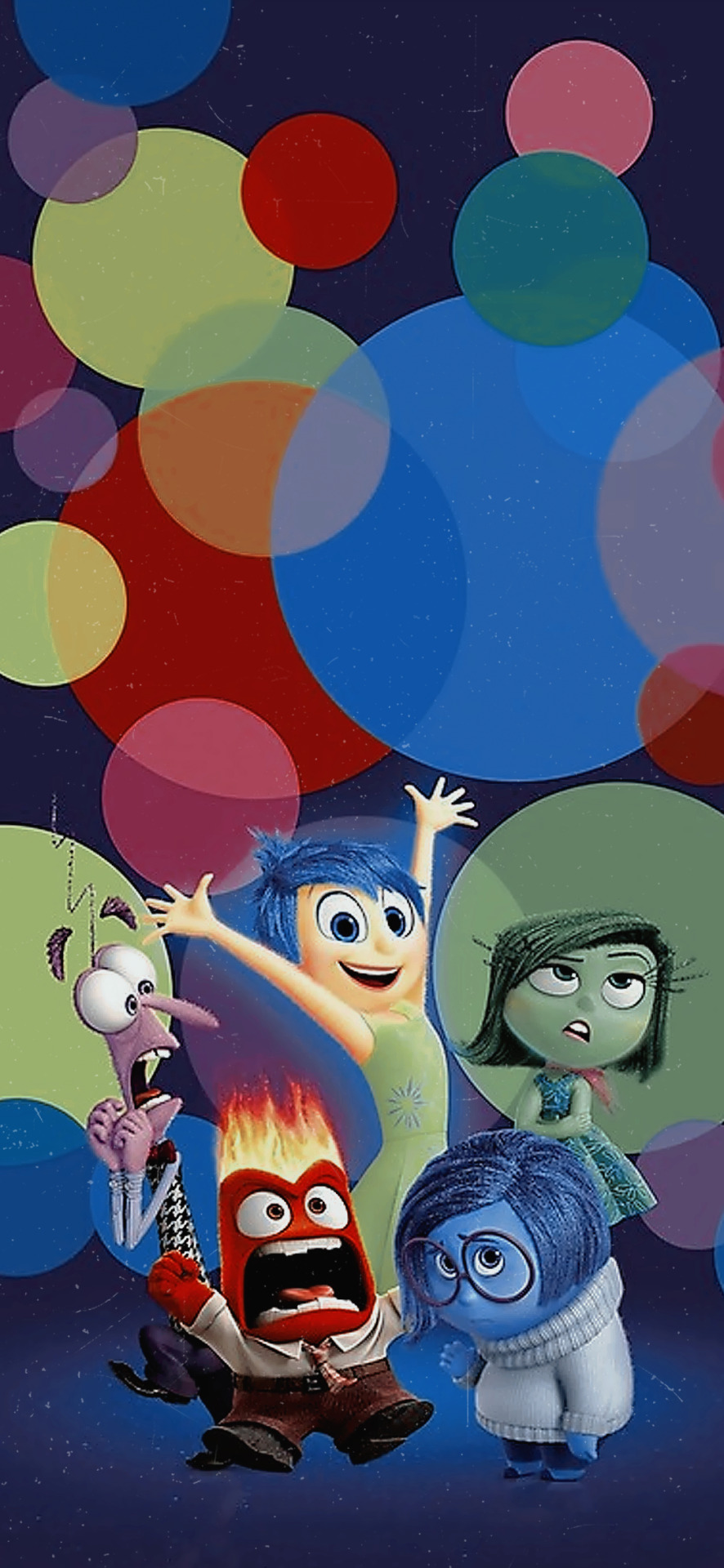

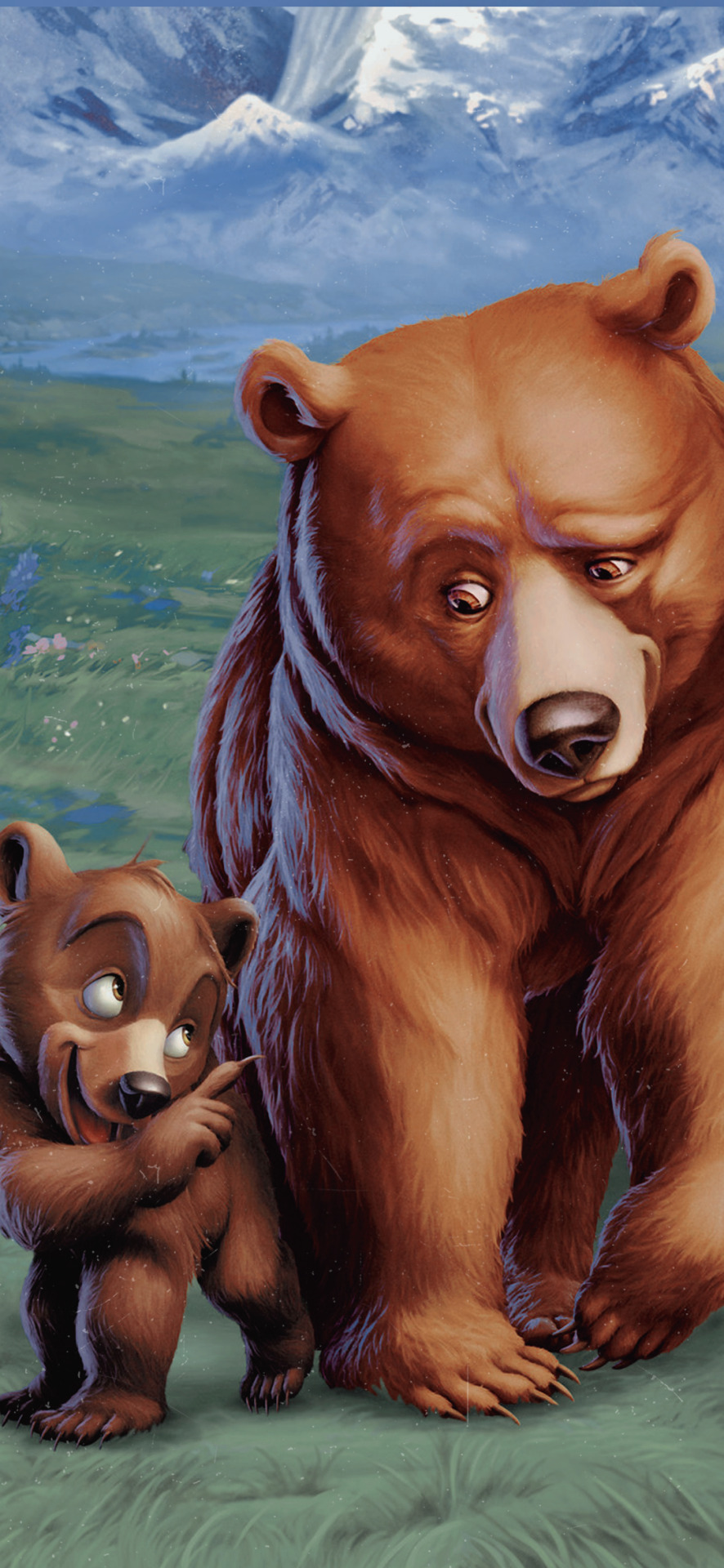
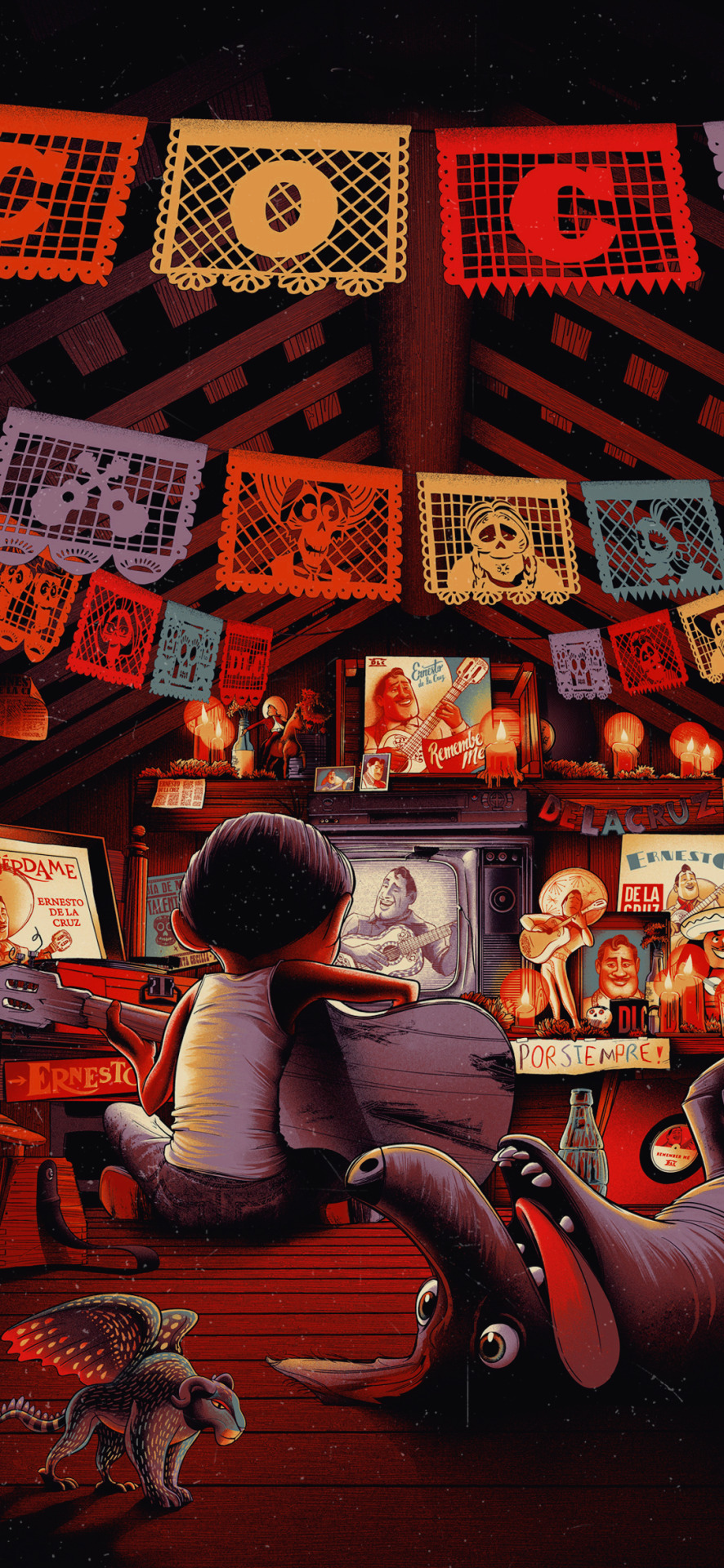


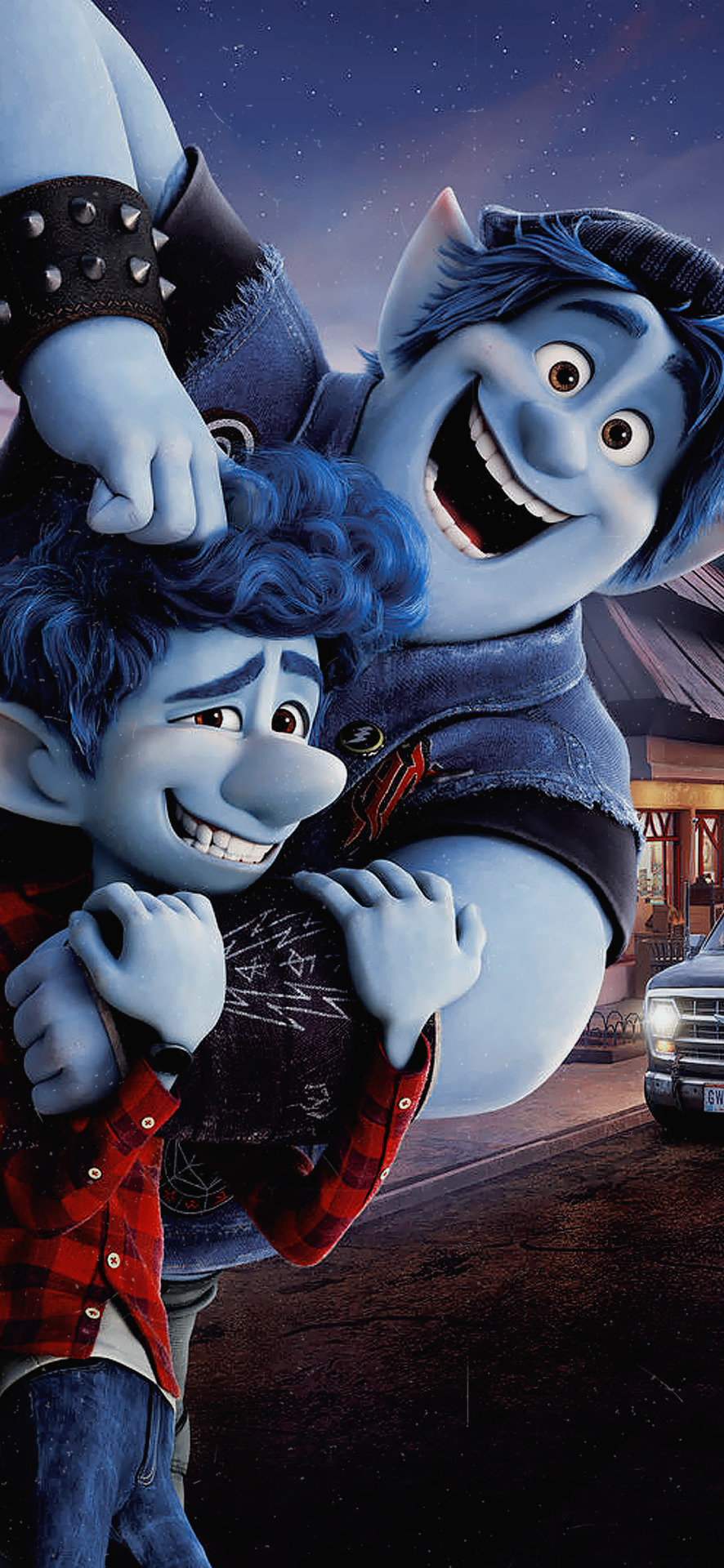
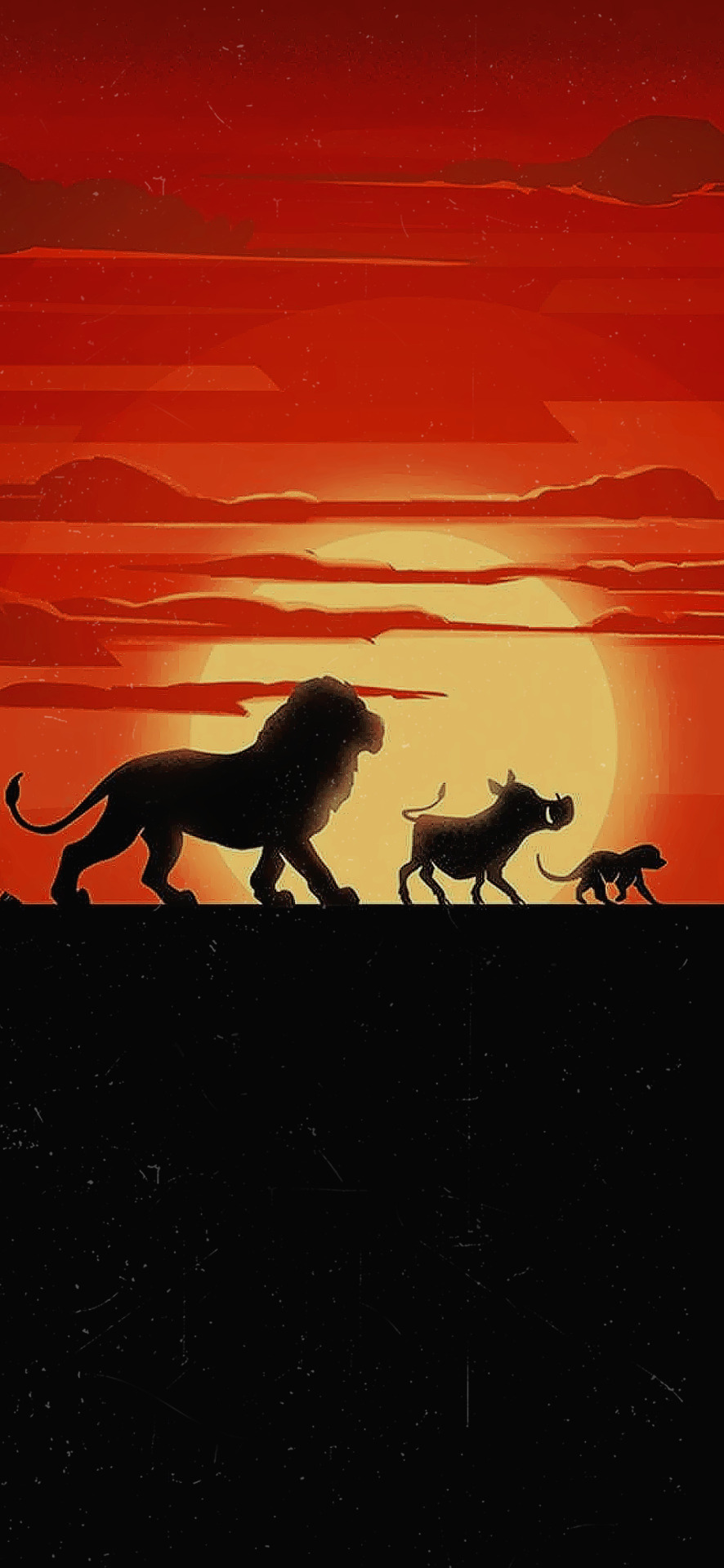
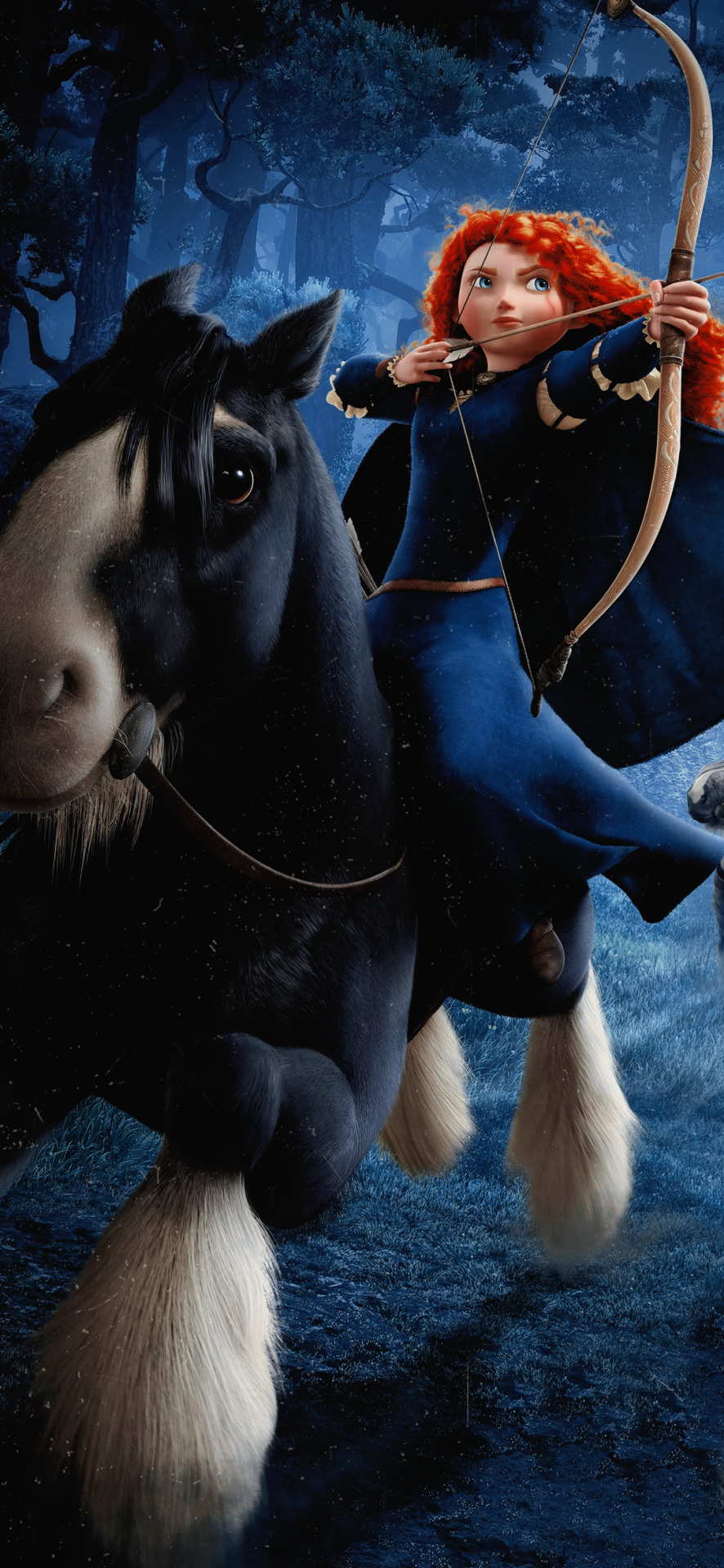
disney animation studios ; simple lockscreens
like/reblog | @spearbinsung
#maju#disney#disney animation studios#brave#merida#up#onward#brother bear#bighero6#big hero 6#inside out#emperor's new groove#lion king#coco
878 notes
·
View notes
Text
Disney Classics that i watch on repeat ✨️ #Disney100


#Disney#Disney100#The Princess And The Frog#The Lion King#Zootopia#Tangled#The Little Mermaid#The Hunchback Of Notre Dame#Tarzan#Brother Bear#Lilo & Stitch#Treasure Planet#Big Hero 6#Emperor's New Groove#Bolt#Aladdin#Hercules#Mulan
105 notes
·
View notes
Text
rosinante being an entirely fearless marine where warlords don’t scare him pirates don’t scare him and he’s not even arrogant or particularly bold bold he’s just not scared. when the only thing that still scares him is the ghost of what used to be his brother everything else pales in comparison
#even hearing of the donquixote pirates i think he still imagines his big brother as that kid. and no matter how big roci grows he’s still#scared of that little kid. rosinante is brave though even when he’s not fearless and he’ll walk into the lion’s den if he has to. and he#does have to. it is his brother after all and who else if not rosinante?#donquixote brothers#rosinante#doffy haunts him the way roci haunts him as well. they think about each other all the time and it sucks for the both of them.#corazon
21 notes
·
View notes
Text
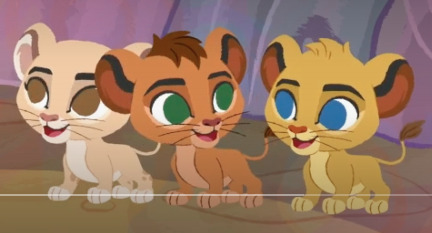
Oh yay, we have new lions who we’re all definitely going to make prominent characters of in our fanfics. (Starts typing aggressively)
Here’s the link to the video these guys showed up in for anyone wondering.
#The lion king#the lion guard#it’s genuinely euphoric as to how Disney Jr’s acknowleding the Lion Guard even 4 years after it ended#Like not with fourth season or sequel or anything big but with these little things such as a musical video featuring Kion#- and these little lovies#And also the Lion Guard family tree book coming out next month#Now if Disney Jr. would air reruns of the show as a tribute THAT would be another story (wink wink)#I’m too lazy to draw or write so I’ll just post my asspull headcanons about these guys#The one on the far left is Kion’s second cousin on his grandmother’s side (i.e. the granddaughter of one of her nephews we see in a comic)#Bc I’m lazy we’ll just call her Aisha#Also that lioness has whiskers and I’m getting Baliyo flashbacks#The one on the far right is Zuri’s younger brother and in my HC Zuri is Tojo’s daughter#So let’s call this dude Bahari meaning sea blue#The one in the middle I’m going to be very lazy and unoriginal and say that’s Chaka#Who was Simba and Nala’s son in an early draft of Lion King 2 but was cut#Nothing implies that Kion is the last cub these two will have so let’s just say Chaka is Kion’s little brother#- who is 4-5 years younger than him and somewhat secluded from his older siblings’ lives in pursuit of his own adventures [/projection]#Unrelated but I headcanon Kopa to be a literal accident baby born after TLK 2/TLG#so yeah Kion has 2 little bros in my canon#Disney Jr.
35 notes
·
View notes
Text
Random Kyoya Tatagami Headcanons
- He is deathly allergic to peaches and avoids almost all stone fruits because of this.
- He learned French in school as a kid along with English for the challenge of it.
- He is autistic and will typically stim by chewing on things or cracking his knuckles.
- He is always reading every scientific study he can find on lions and secretly kinda wants to be a park ranger.
- He read Warrior Cats as a young kid.
- He has a ton of cat like mannerisms (ie. sleeping in empty boxes, ending up sitting in weird spots, napping 24/7) .
- He picked out Kakeru’s name himself.
- He wears contacts throughout the series after inheriting his dad’s poor vision, but carries backup glasses just in case.
- He adopted a street cat after the World Championships and named her Simba.
- He loves strawberry flavored things.
- He is in a gossip groupchat with Sophie and Tsubasa because they are the only ones out of everyone who speak French.
- He keeps a surprisingly large collection of highlighters due to Kakeru always stealing his.
- He still will bite on Leone like he did as a kid when he’s nervous or stressed and Nile got him a chew necklace upon noticing this.
- He is amazing with most kids because of practice with his brother (this does go out the widow where Yu is involved).
- He goes to all of Kakeru’s BMX competitions and facetimes him at least once a week.
- He always has people’s names listed in his phone as nicknames because it helps him remember them (ie. Kenta is Gingka’s Brother).
- He has special interests not just in lions but in weather phenomenon like tornadoes.
#mfb#beyblade metal saga#kyoya tategami#beyblade kyoya#autistic kyoya#so i double checked his lion facts and he's... right. lone lions? those are real. typically young males traveling to join a pride#but they can stay that way forever. it's just rare#sooooo he actually knows a ton about lions#i found a claw shaped chew necklace and immediately thought of this fucker#he is also an amazing big brother#and great with kids#yu just gets on his nerves#kyoya gives everyone much more blunt nicknames#like the only sweet ones are kakeru's nile's demure's benkei's and his dad's#which are baby brother. ni. mure. kei. and dad respectively#gingka's is horse brained hagane#slight kyoni if you squint and do a headstand in a tornado
49 notes
·
View notes
Text
I'm realizing how Disney creeped its way back into my life, and just how important it was to me.
Kingdom Hearts was a big part.
Major movies: Brother Bear, The Lion King, Bambi, Winnie the Pooh, Aristocats, The Fox and the Hound, Aladdin, The Little Mermaid, Lilo & Stitch, Up, and Big Hero 6.
Then for years, I'm not in Disney.
Then here comes Twisted Wonderland barrel rolling down my path and right in my face, dragging me right back into the magic I adored so much that formulated my inner sanctum.

#disney twisted wonderland#disney#kingdom hearts#brother bear#winnie the pooh#the lion king#the aristocats#the fox and the hound#aladdin#the little mermaid#big hero 6#bambi#disney pixar up#twst#twisted wonderland#disney pixar#lilo and stitch
15 notes
·
View notes
Text
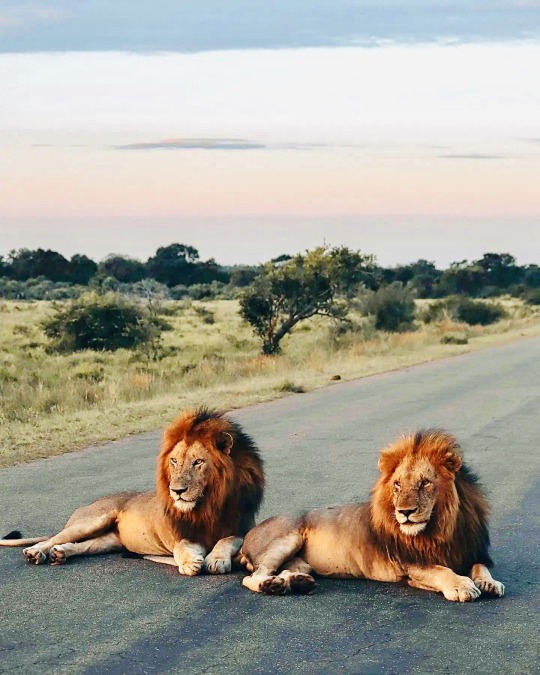
15 notes
·
View notes
Text

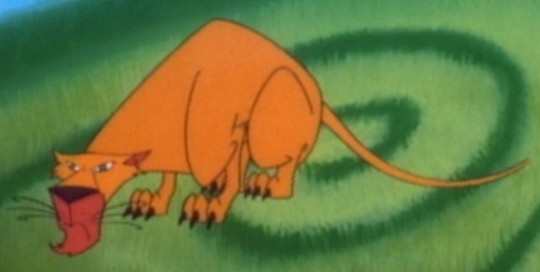
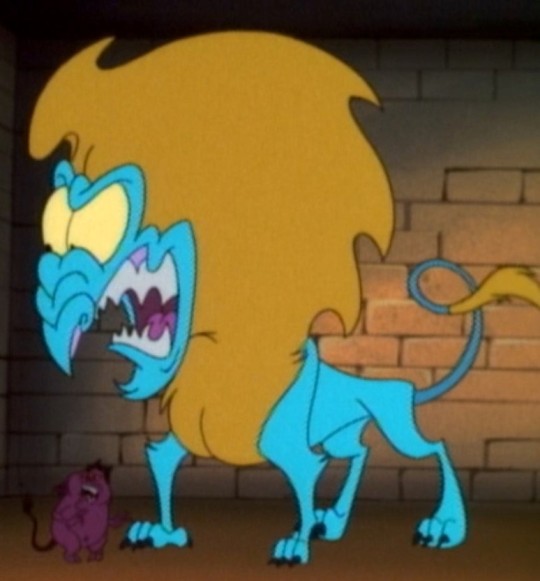
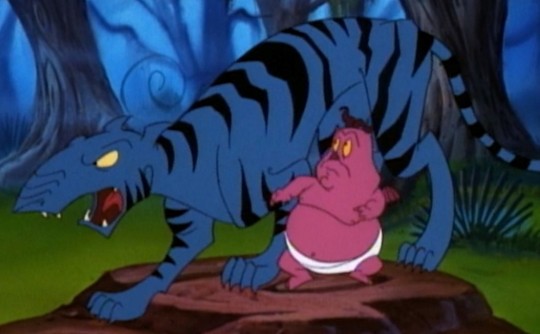
PANIC + TURNING INTO WILD CATS
#🌠#Disney#Hercules: The Animated Series#Screencap Post#Panic#Apparently cats are Panic's creature of choice to shapeshift into - after humans and snakes of course.#I guess he wasn't kidding when he said he's more of a cat person in “Hercules and the Visit From Zeus”.#Also if I had a nickel for every time Panic transformed into a large wild cat to protect Pain from danger...#... I'd have two nickels - which isn't a lot but it's strange and kind of sweet that it happened twice.#Nobody hurts his big brother on his watch!!#And yes - before y'all say anything I know technically he and Pain were fused together when they took on...#... Hercules in the form of a giant lion. I'm still including it because it's cool.
7 notes
·
View notes
Text
sighsss thinking abt my voltron aus again
#shut up danni#i have big issues w canon but god the world and the characters keep drawing me back which is why i love the fanfic#the one i keep thinking abt is one that i barely developed and is marginally dumb as fuck#but basically krolia never went back to space to act as idk a sentinal for the blue lion if it ever got discovered#and so when keith's dad dies she raises him??#imagine this absolutely jacked woman dressed in the most concealing outfit w v thick makeup and barely managing to pass off as human#everyone think she's so unbelieveably weird but they're all super intimidated by her to not give her or keith shit abt it#there's still horror stories passed around by that one adult that had snubbed keith at the park abt krolia's utter fierocity#and instead of keith getting adopted by shiro's family imagine if you will: shiro gets adopted by keith's family#krolia being like 'hm my son has adopted an older brother. yes. he is mine now.'#shiro just being baffled at how fkn weird his new brother and mom are when he goes to their shack for the weekends#and when keith comes home w his brother and three other humans talking abt voltron she knows its time and shows them the blue lion#anyways krolia joining the gang on board and being like....the space mom lol#hm. mayhaps i will draw totally a human krolia.....
8 notes
·
View notes
Text
youtube
CR • People I don't Like
#brother bear#bolt#kung fu panda#hercules#spiderverse#anastasia#the lion king#luca#shrek#the great mouse detective#peter pan#surfs up#big hero 6#fanvidfeed#finished mep#non/disney#canon renaissance
3 notes
·
View notes
Text
Cried driving to an interview listening to the Between the Lions opening
#and also Bear in the Big Blue House#these shows meant so much to me...#Lions especially just the beauty of education and media and puppetry#I have a vivid memory of going to work with my dad and watching the show on a little portable tv while my dad worked#and thinking about Bear being a calm fatherly figure and the warmth he brought to kids who didn't have that#the times before school with my dad and brother watching shows together before school#kids don't have this anymore and it's heartbreaking
4 notes
·
View notes
Text
A friend: “But why did you make his (Euron’s) rooms the attic of the gdamn sea tower? That’s so edgy.”
Me, looking at the camera like.
I just like to fondly imagine Harlon, Quenton, Donel and Balon making fun of their baby brother for wanting the attics like an absolute emo. If there was a basement, he’d want the basement, but there is no basement because have you seen Pyke?? Besides, I don’t wanna miss out on all the crow puns I can make regarding attics and crow’s nests. And all the absolute inane sibling drama.
Donel, miming Lady Syreen: “It has to be repaired Quellon, or my ickle wickle wittle baby will catch a plague!”
Balon, in that long-suffering way of his: “You remember that’s my mother too, right?”
Donel, laughing: “Does she??”
#I like to think Donel is like Euron minus the mad-assery#just constant burns that make you want to throttle him#and no magic cocaine to excuse it#Yes you should be afraid#And Balon just has Mom Likes My Baby Brother Better vibes#There's a decent age gap between the four eldest and four youngest squids#with Balon and Euron flanking that divide#And I am not saying that being favoured to death by your mother makes you a terrible person#but if you are a terrible person that does NOT help getting your head on straight and decent#Bonus points if your big brothers are mean to you cuz you're a little shit#but mom agrees with you#I am sorry I love these jackasses#even if they only live in my head#house greyjoy#euron greyjoy#balon greyjoy#a saga of bears & lions#more like squids but anyway
4 notes
·
View notes
Text
Portrayal of young people dealing with grief/loss in animated films
TW: Mentions of death/loss, trauma and mental illness
Please beware of potential spoilers for the following films: “The Lion King”, “Brother Bear”, “Frozen”, “Big Hero 6″, “Abominable” (2019)
I recently discovered that the animated films “Abominable“ (2019) and „Big Hero 6“ (2014) both focus on the issue of children/teens/young adults and loss as a kind of main topic and wanted to dive a little further into this subject.
There are two main reasons why I find it very important to discuss this: Firstly, because, at least in my opinion, the public awareness of it is relatively low – this also applies to death in general, being a rather “unpleasant“ subject to talk about, but is especially problematic when it comes to young people, whose problems very often go unnoticed. Secondly, animated films, being mainly targeted at a young audience, could support young people going through difficult times by showing them that they are not alone and maybe even what could possibly help them to deal better with their own problems, besides helping to raise public awareness for these issues. That being said, I selected a couple of animated movies (mainly Disney) from the last 30 years where the topic of loss plays a sufficiently big role. I chose the ones that I know well enough to analyze them and also the ones that I personally found the most interesting, so the choice is definitely pretty subjective and maybe a bit “biased“, but it should be informative nevertheless.
The first film that I‘d like to discuss is Disney‘s classic “The Lion King“ (1994). I‘m well aware that this choice isn‘t unproblematic – after all the main (young) protagonist “Simba“ is a lion, not a human. Since the animals in Disney films are almost always pretty humanized, I decided that it was alright, though. I especially wanted to include that film, because it deals with the combination of loss and trauma – Simba not only loses his father, but also witnesses his death and moreover gets guilt-tripped by his uncle into believing that it was his fault. While this may be a very extraordinary situation, the feeling of guilt is very common when it comes to loss. Simba can only leave the feeling of guilt behind at the end of the film when he learns about the true circumstances of his father‘s demise. It also shows how much these experiences influence Simba later in his life – he doesn‘t feel „worthy“ of being king, he runs away from the rest of his family (which could also be interpreted as secluding himself) and just wants to forget about the past. Only when he (literally) confronts his “inner demons“, he is finally able to make some sort of peace with it. All in all, the portrayal of a young “person“ dealing with loss in this film (although it‘s a rather crass situation) seems pretty accurate and includes some helpful pieces of “advice“ on how to deal with guilt.
The next movie I‘d like to analyze is “Brother Bear“ (2003). Once again, this film doesn‘t (exclusively) focus on humans, but is nonetheless informative since it portrays two experiences with loss which are closely interwoven: On the one hand, young adult “Kenai” has to deal with the death of his brother, on the other hand, the little bear “Koda” loses his mother. Kenai‘s situation resembles the one of Simba – both have to deal with guilt. But whereas his father‘s death isn‘t Simba‘s fault at all, it‘s much more difficult for Kenai to clear himself of being the one responsible for his brother‘s death. The interesting thing is that, whereas Simba takes the blame without questioning it further (probably because he is supposed to be still a “child“ when his father dies), Kenai shifts the blame fully onto the bear that his brother tried to protect him from and which he kills in the process. Later, when Kenai learns that the bear he killed was the mother of Koda, he once again feels guilty, but this time takes on responsibility for it. Koda, of course, is shocked when he learns this, but they both are able to come to terms with the past in the end, finding the family they both lost in each other. This film deals with the especially difficult issue of actually being (at least partly) responsible for someone‘s death – in real life this could, for example, be the case in a car accident. While this might not be that relevant for young people, there is another key message: even after the loss of someone, it is possible to find comfort in other people – be it other family members/relatives or, like in that example, friends.
Another film which I was a little hesitant to include here is “Frozen“ (2013) – while the main protagonists are humans, they are both technically already “adults“ (18 and 21 years old). I finally decided to include it because I personally think that an experience with loss at that age is still pretty difficult. People in their early twenties of course still struggle very much when they lose someone, but at the same time are expected to act all “grown-up“. This is exactly what the film shows: Both Anna and Elsa have to grow up pretty quickly, taking on important responsibilities from one day to the next, most likely without having been properly prepared to do so. While Anna tries to mend the bond with her sister, Elsa shuts herself away from everyone – which is also not unusual when people try to deal with loss. “Frozen” especially focuses on the aspect of relatively young people having to deal with a lot of responsibility – this seems pretty relatable for everyone who has lost one parent or both. But the film also shows another important thing: letting others help you instead of trying to get to grips with everything on your own, is a really important resource in difficult times. This message is especially relevant for young adults, who might feel like that they‘re alone and don‘t have anyone who could support them.
“Big Hero 6“ (2014) and “Abominable“ (2019) are the two films that, in my personal opinion, focus the most on the experience of loss itself. In the other films that I discussed previously, the experience of loss per se wasn‘t really the focal point – more often than not it rather served as a topic to help develop the actual plot. In “Big Hero 6“ 14-year-old Hiro has to deal with the loss of his brother – who seems to have been the only one left of his core family. “Abominable“‘s main protagonist is Yi (who might also be around Hiro‘s age), who has recently lost her father. Both films take the experience of loss as a kind of starting point and the topic stays relevant throughout the whole movie. Both Hiro and Yi have to deal with extraordinary situations (helping an escaped Yeti get back to the Himalayas/fighting a masked villain) that could symbolize them trying to come to terms with the definitely extraordinary situation of their personal losses. Hiro is portrayed showing signs of depression, Yi tries to cope by always keeping herself occupied with something. In Hiro‘s case anger also plays an important role, when he finally finds out who really is responsible for his brother‘s death. Yi rather seems to have to deal with grief, regretting that she never got to travel the country with her father, like they had planned. At the same time, both teens struggle with letting others (friends and family) help them.
This is especially prominent in Yi‘s case: During one scene she is talking about her experiences with her friend Jin, telling him that her mother and grandmother don‘t understand her and that she feels as if they were pushing her away. Jin then asks her whether it couldn‘t be possibly her, that is pushing them away. I think that is an extremely relatable scene – especially young people having to deal with things that are way too “heavy“ for them, often feel as if they were alone, because no one can truly understand them. While this often may be the case, isolating oneself is also a pretty common reaction to experiencing loss – wanting to be left alone to come to terms with everything etc. Yi always carries part of a photo with her, that shows her and her father. At the end of the film, the Yeti that she helped rescue, hands her the other part of the photo – showing Yi‘s mother and grandmother – and puts the two pieces together. This way, Yi finally realizes that she still has a family that loves and supports her – if she lets them. In a similar way, the robot “Baymax“ that was built by his brother, helps Hiro to realize the importance of friendship. In my personal opinion “Abominable“ depicts the topic of young people and grief in the most accurate and realistic way, making it especially relatable and possibly the most “helpful“.
To summarize my previous analysis, a varied set of animated films has, so far, portrayed the various aspects of young people dealing with loss. The different films focus each on different aspects of grieve – especially sadness/depression, anger, regret, guilt, having to grow-up quickly, isolating oneself and (not) accepting help/support. What strikes me as both important and interesting is the way these films approach the issue: Older films like “The Lion King“ and “Brother Bear“ only dealt with the topic “in disguise“. Not only that the main protagonists were (partly) animals, but the aspects of loss and grieving weren‘t really the focal point of the plot. This is what, in my opinion, makes the two most recent films “Big Hero 6“ and “Abominable“ special: A quite young protagonist trying to come to terms with their loss is basically the central theme of both films. In contrast to the older films, these two movies approach the topic more openly, depicting things like depression or showing funeral scenes (the latter also applies to “Frozen“). I personally interpret that as a kind of shift in film-making, especially Disney seemingly becoming “bolder“ as time goes by and no longer producing only “feel-good-movies“, but also films dealing with serious topics - not only mentioning them but actually making them a main theme of the plot. This is especially important since animated films are not only ideally suited to portray “difficult“ subjects in a way that is suitable for young people, but also to show them ways to deal with their own problems and therefore help and support them during severe crises, especially when they lack people to support them in real life. Besides, such films can play an important role in awareness raising.
#disney analysis#the lion king#brother bear#frozen#big hero 6#abominable (2019)#disney theory#tw: death#tw: loss#tw: grief#tw: trauma#tw: mental health#tw: mental illness
12 notes
·
View notes
Note
I really like that last ask about B2J going to human places …… (imagine them going to zoos, supermarkets, beaches, hotels, amusement parks, movie theaters, concerts for the first time…)
Indeed. They're so enthused with just about everything they see in Vinyl City. Their old colony had a few similar things, but lower caste gems like them aren't allowed in unless they're with higher caste gems. It's amazing for them to be free to go wherever they want and there's so many things to see.
It's a mind-blowing experience for them, almost overwhelming after living so long in the caste system.
They love every second of their new freedom.
#May would probably be the one to enter the lion's enclosure just to take a closer look at the cool cats#meanwhile gigi and zam are panicking because GUYS STOP WALKING INTO PLACES YOU SHOULDN'T BE!#Zam probably had a stroke after that#they're like worries parents/uncles/big brother figures and B2J are like little kids wandering about#no straight roads#nsr#nsr au#no gem roads#no straight roads au#gem au#nsr mayday#nsr zuke
6 notes
·
View notes